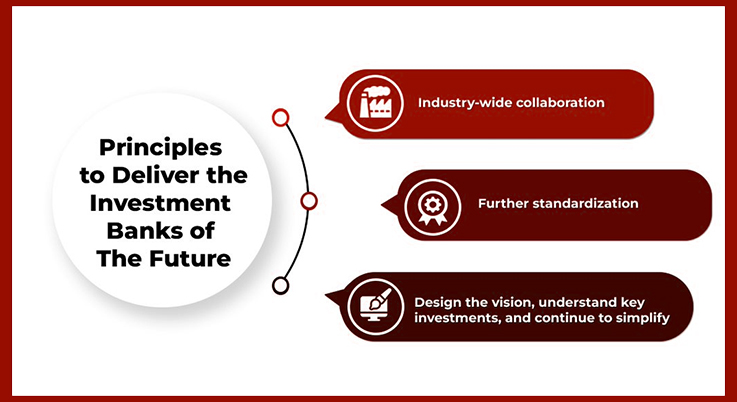If you’re considering launching a career in investment banking during the latter part of this year, be prepared to face a more challenging and dynamic landscape. Both industry professionals and headhunters searching for new opportunities have reported a softening job market, primarily due to the underperformance of anticipated revenues and various global economic factors. In this comprehensive article, we’ll delve into the intricacies of the current investment banking landscape, the factors affecting it, and the strategies professionals can employ to succeed in this evolving environment.
The Changing Tide in Investment Banking
Investment banking is a sector known for its cyclical nature, with periods of boom and bust. Understanding these cycles is crucial for both seasoned professionals and newcomers seeking to make their mark. In the first half of 2022, there was a sense of optimism, particularly in areas like equity capital markets and leveraged finance. Revenues were expected to be robust, and opportunities seemed abundant. However, as we transition into the second half of the year, this optimism has encountered a reality check.
Factors Influencing the Job Market
Several factors have contributed to the shift in the investment banking job market:
- Geopolitical Tensions: Geopolitical tensions across the globe have had a cascading effect on financial markets. Uncertainty stemming from geopolitical conflicts can dampen investor sentiment, leading to decreased deal activity and, consequently, reduced job opportunities.
- Rising Interest Rates: Central banks in various countries have started to raise interest rates in response to inflationary pressures. While higher interest rates can benefit certain segments of the financial industry, they can also make borrowing more expensive, potentially slowing down economic growth and deal-making.
- Market Volatility: Volatility in financial markets has become more prevalent, causing concerns among investors and businesses. Such an environment can lead to hesitation in initiating deals and investments, affecting the demand for investment banking services.
- Debt Market Challenges: The debt market, particularly in Europe, has faced significant challenges. The European market, which saw an unprecedented $1.5 trillion in leveraged loan issuance in 2021, has struggled in 2022. Concerns over rising borrowing costs, coupled with difficulties in offloading debt, have added to the uncertainties.
- Regulatory Changes: Regulatory changes can have a profound impact on the investment banking landscape. Financial institutions may need to adapt their strategies and operations to comply with evolving regulations, which can, in turn, affect hiring and job opportunities.
Credit Suisse’s Contrarian Approach
Amid these challenges, some banks have taken a contrarian approach. Credit Suisse, for instance, has boldly announced its intentions to expand its presence in leveraged finance, mergers and acquisitions (M&A), and equity capital markets. This move is indicative of the resilience and adaptability of certain institutions in navigating the turbulent investment banking waters.
David Miller, the head of investment banking and capital markets at Credit Suisse, confidently stated that the bank is “back” and pointed to its significant activities in the US leveraged finance sector. These activities include the acquisition of McAfee Corp, Apollo’s buyout of Novolex, and leading a $3.35 billion buyout loan for software company CDK Global Inc.
However, Credit Suisse’s approach may not be the norm across the industry, as headhunters have indicated a slowdown in hiring activity, particularly in European leveraged finance. “Only critical hires are getting signed off,” noted one headhunter. “The decline in fees is significantly affecting sentiment, and it takes a compelling case to get anyone hired. Replacement hires may be considered but ideally at a lower cost.”
With limited headcount availability, existing employees may find themselves shouldering heavier workloads to cover gaps in their teams. The origination director cautioned, “If we find ourselves in a similar situation in September, jobs will be cut.” The headhunter echoed this sentiment, stating, “This is a precursor to potential job cuts in Q3.”
Strategies for Success in the Evolving Landscape
Aspiring investment bankers and industry professionals must adapt to the changing landscape to secure opportunities and thrive in their careers. Here are several strategies to consider:
1. Diversify Your Skill Set
Given the shifting demands of the market, it’s essential to broaden your skill set beyond your core competencies. Learning new financial instruments, gaining expertise in different industries, or enhancing your knowledge of emerging markets can make you a more valuable asset to potential employers.
2. Stay Informed and Agile
Keeping abreast of market trends, regulatory changes, and geopolitical developments is paramount. Be prepared to adjust your strategies and approaches swiftly to align with the evolving landscape.
3. Network Effectively
Networking remains a powerful tool in the world of investment banking. Build and maintain relationships with industry professionals, colleagues, and mentors. These connections can provide valuable insights, job leads, and recommendations.
4. Consider Geographical Flexibility
While the job market may be challenging in one region, it could be thriving in another. Be open to opportunities in different geographic locations, and consider relocating if it aligns with your career goals.
5. Develop Resilience
Navigating the ups and downs of the investment banking industry requires resilience. Understand that setbacks and market downturns are part of the game, and maintaining a positive attitude can help you persevere through challenging times.
6. Pursue Continuous Learning
Investment banking is a dynamic field that requires continuous learning and adaptation. Consider pursuing additional certifications, advanced degrees, or specialized training to stay competitive.
The second half of 2022 presents both challenges and opportunities for those looking to forge a career in investment banking. While the industry may face headwinds due to geopolitical tensions, rising interest rates, and market volatility, there are still institutions, like Credit Suisse, actively expanding their operations. To succeed in this evolving landscape, professionals must diversify their skill sets, stay informed, network effectively, remain resilient, and pursue continuous learning. By embracing these strategies, individuals can navigate the changing tide of investment banking and thrive in their careers.




